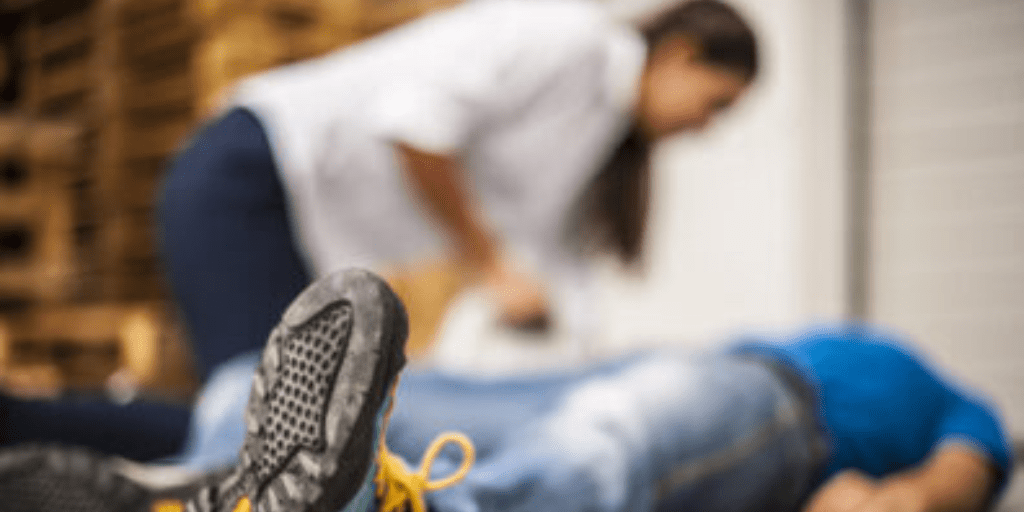Slip and fall accidents are often dismissed as minor incidents where someone stumbles and ends up momentarily embarrassed or inconvenienced. However, these seemingly simple mishaps can be quite serious, leading to substantial injuries and even long-term consequences. Below, a slip and fall lawyer will help you learn more about:
- What a slip and fall is
- Who is responsible for a slip and fall
- The most common injuries caused by a slip and fall
What Is A Slip And Fall?
A slip and fall is an accident that occurs when someone encounters a hazardous situation that causes them to lose their balance and fall. Common causes include slipping on wet floors, tripping over unexpected obstacles, or losing balance due to uneven ground. For example, a person might step into an unnoticed hole at a friend’s backyard barbecue, causing them to twist or injure their ankle, foot, or leg. Similarly, a slip and fall could happen in a grocery store if there’s a spill or leak that goes unattended. Even an uneven sidewalk can lead to a sudden fall.
While some falls result in minor scrapes and bruises, others can lead to serious injuries. When a person lands on hard flooring or pavement, the impact can cause significant damage, especially if the individual falls forward or backward with force.
Who Is Responsible If You Slip And Fall?
Responsibility for a slip and fall accident typically falls on the property owner or the business occupying the property. According to our friends at Herschensohn Law Firm, PLLC, other potentially liable parties may include:
- Tenants: If a tenant fails to address hazards within the rented property, they may be held liable.
- Businesses: Stores, restaurants, or offices that neglect safety can also be responsible for slip and falls on their premises.
- Property management companies: These companies manage multiple properties and are often responsible for maintenance and repairs.
- Homeowners’ associations (HOA) or condominium associations: These entities may share liability for accidents on shared or community property areas, like pools, gyms, or lobbies.
Liability in a slip and fall accident can sometimes be complex, as multiple parties may be involved. For instance, a property owner and a business tenant could both be partially liable if they each had a role in failing to maintain a safe environment. To learn more about determining liability, it’s best to schedule a consultation with a slip and fall attorney who can help navigate the specific circumstances of your case.
What Are The Most Common Injuries In A Slip And Fall?
Slip and falls can be dangerous and lead to various injuries. Some of the most common injuries include, but are not limited to:
- Fractures or broken bones: Bones in the wrist, arm, and hip are particularly vulnerable in falls. Hip fractures, especially in older adults, can require surgery and lengthy recovery.
- Traumatic brain injuries (TBI): Falls are a leading cause of traumatic brain injuries. Even a minor fall can result in a concussion or bleeding on the brain, which can lead to long-term cognitive issues if not properly treated.
- Sprains and strains: Muscles and tendons in areas such as the ankle, knee, neck, or wrist can become overstretched or torn, causing significant pain and limited mobility.
- Dislocated shoulder: Falling onto an outstretched arm can lead to a shoulder dislocation, which may require medical intervention to reset and rehabilitate.
- Knee damage: Torn ligaments, such as the ACL or MCL, are common in falls where the knee takes an impact. These injuries may necessitate surgery and extensive physical therapy.
- Back injuries: Landing on the back can lead to serious spinal injuries, herniated discs, and chronic pain conditions.
- Emotional trauma: Post-traumatic stress disorder (PTSD) or anxiety may develop after a fall, particularly if the incident was severe or caused long-term harm.
While slip and falls may seem like minor accidents, the injuries they cause can be life-altering, particularly for older adults or individuals with pre-existing health issues. Understanding the risks and potential liabilities associated with these accidents can help you take steps toward both preventing falls and seeking justice if one does occur. If you or a loved one has been injured in a slip and fall accident, it’s wise to consult a legal professional who can provide guidance and advocate on your behalf.
